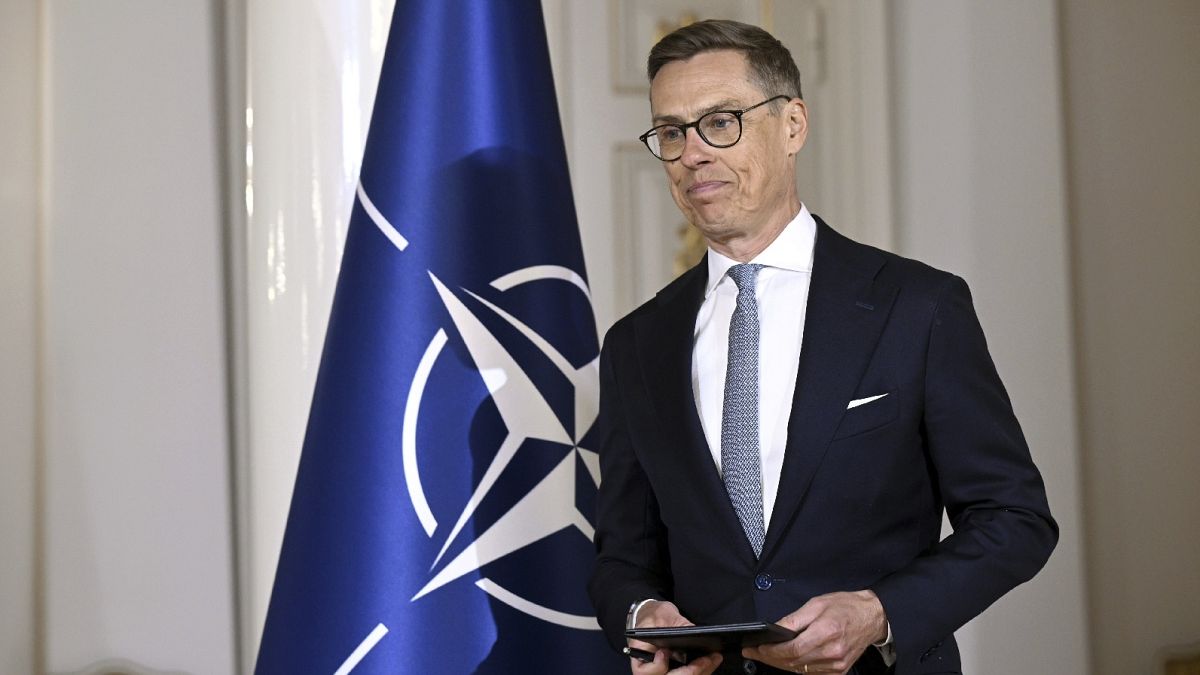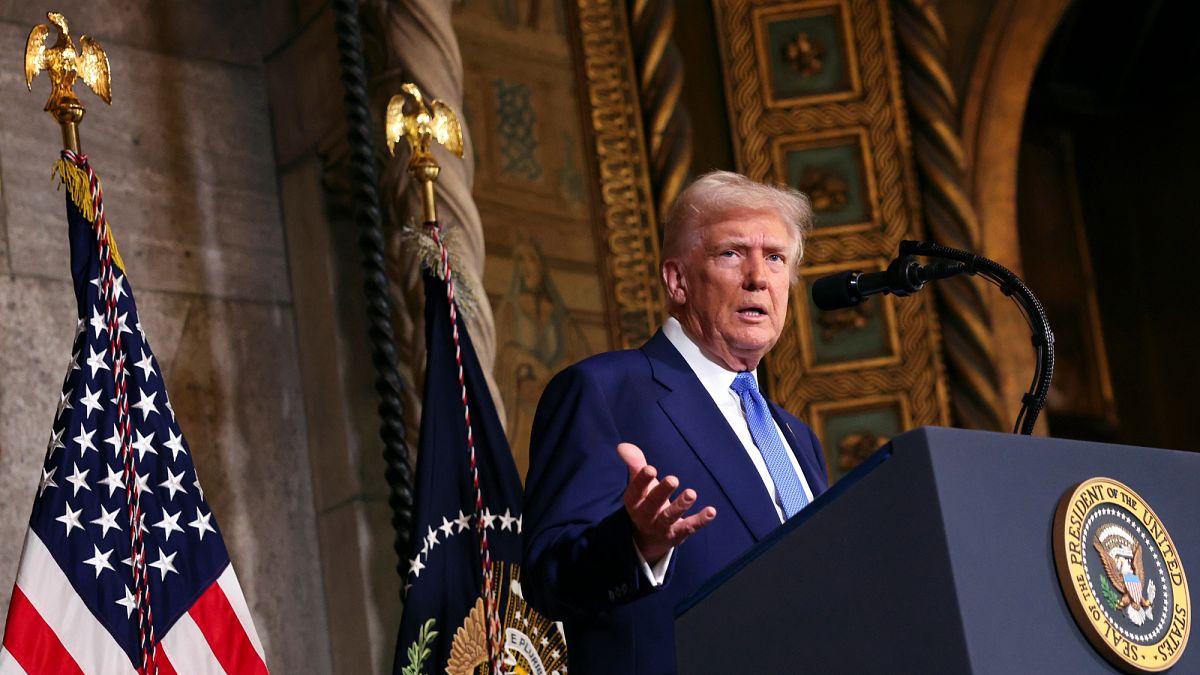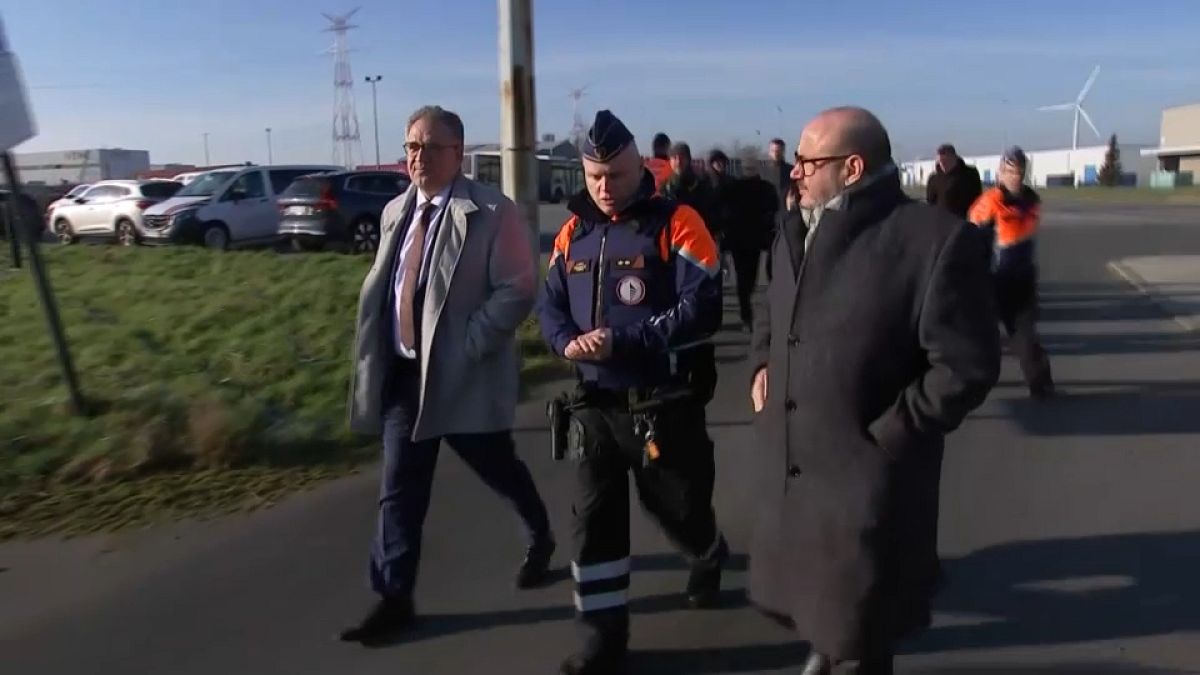Stubb: US gave Europe ‘questionnaire’ on Ukraine security guarantees

The Finnish President called for calm among European leaders over the US announcement that peace talks between Washington and Moscow would start “immediately”.
The US has asked European allies to fill out a questionnaire detailing how many troops and capabilities they could deploy in Ukraine as security guarantees to end the war in Ukraine, Finland’s President said on Saturday.
“The Americans have provided Europeans with a questionnaire on what would be possible,” Alexander Stubb said in a press conference at the Munich Security Conference, confirming a report by the Financial Times.
“This will force Europeans to say that it’s up to the Europeans to decide whether they actually answer the questionnaire or whether they answer it together,” he added.
Asked about the talks Donald Trump said earlier in the week would start “immediately” between the US and Russia to bring peace in Ukraine, Stubb said that “nothing has started” and called for calm in Europe.
The statement by the US President prompted widespread condemnation in Europe over fears Ukraine, and European countries, would be excluded from the peace talks. Additional comments from US State Secretary Pete Hegseth that Ukraine’s goals of becoming a NATO member and of returning to its pre-2014 borders were “unrealistic” also ruffled feathers as it suggested Russia had already secured two major concessions without offering anything in return.
“Europe needs to get its act together. Europe needs to talk less and do more. What worries me is that we’re seeing diplomacy, which is all over the place. I see a lot of people here who are upset and who are not happy with the situation. But my question is, okay, what are you going to do about it?” Stubb told reporters.
The Finnish politician, who was chairman-in-office of the Organization for Security and Co-operation in Europe (OSCE) when the peace deal in Georgia in 2008 was being brokered, said that peace talks have at least three phases, and that Trump had initiated the first one on “pre-negotiations”.
During this phase, he said, the aim would be to put maximum pressure on Russia and to continue to ensure Ukraine is in a position of strength.
Phase two would be a ceasefire with a demarcation of the border and monitoring on both sides during which “confidence-building measures” would have to be rolled out by both sides while they discuss the modalities and agenda or the actual negotiations, which would be phase three.
“But this cannot happen unless there are clear security arrangements for Ukraine, where Ukraine takes the lead, where the EU supports and when the united where the United States provides a backstop, because the only thing that Russia and Putin understand is power,” Stubb said.
“We now know we have to move Ukraine to a position of strength in the negotiations. But for that, we need a plan. And to me, it seems like no one really has a strategy for a plan,” he added.
The US questionnaire, he continued, should therefore be seen as “good news” as it suggested allies have time to prepare.
He said Europe “shouldn’t get ahead” of itself by fretting over who will be at the negotiating table and should focus on making sure it can provide Ukraine with “sustainable security arrangements”.
“I think the bottom line is very clear at the negotiating table, if there is a table, will be composed of Ukraine, Russia, the United States and Europe in one form or another,” he said.
General Keith Kellogg, Trump’s special envoy for Ukraine and Russia, had however earlier in the day said that European participation in the peace talks was not guaranteed.
“You can have the Ukrainians, the Russians, and clearly the Americans at the table talking,” he told an event at the Munich Security Conference.
Asked about Europe’s involvement, he said: “I’m from the school of realism. I think that’s not going to happen.”
World News || Latest News || U.S. News
Source link



